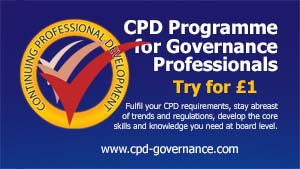Intake Meetings
A coaching programme will normally start with an intake meeting, the first part of which might be attended by line managers and HR personnel as well as the client to be coached.

What is the purpose of an intake meeting?
The purpose of an intake meeting is to agree the principles and objectives of the programme: -
- To involve the client's line manager
- To check fit between coach and client
- To agree a process for working together
- To set outcomes for the coaching programme
Line manager's role
To provide the individual with time to undertake the coaching.
- To recognise that they will not get information back from the coach on the client, unless it has been explicitly agreed with the individual and the coach.
- Not to expect the individual to meet unrealistic goals or meet goals in unrealistic timeframes.
- To discuss progress with the individual and what they feel they have gained.
- To recognise progress and reward achievement of coaching goals.
Check fit between coach and client
- Is the client ready for coaching? Try the coaching quiz.
- Do client and coach understand what they are going to do together?
- How can the coach best assist the client?
- Does the client want to be challenged?
- Does the client like being given things to do?
- Does the client like being held to account?
Establish the ground rules
The intake meeting is not a typical coaching session; it is to be used to establish the basis for the coaching programme and is likely to cover the following: -
- Introduce the coach and discuss options for an alternative in case of personality clash
- The purpose of the coaching
- Why the client has been selected
- The objectives for the coaching from the organisation’s perspective
- The length of the coaching arrangement (number of sessions; length of each session)
- Typical outline of a coaching session
- Confidentiality and reporting back of information. Even when the employer pays and sets the context, the coach works for the individual client and respects the confidentiality of the sessions.
- How the coaching will be evaluated
- Commitment and priority – time is fixed, the organisation will be charged if the client is late or does not turn up – no phones or pagers!!
- No blame – the client takes ownership for decisions and responsibility for his/her actions; the coach provides feedback.
Set broad outcomes
A coaching programme is like a series of stepping stones. Each step is complete in itself and also moves you towards an overall objective.
The coach is here to support the client, but it is the client's responsibility to identify the outcomes to achieve, and their responsibility to take the actions to achieve the outcomes.
In order to identify some areas to work in, it is useful to score satisfaction in different areas of life using the Wheel of Life. and the Wheel of Work. Alternatively, there might be pre-defined areas or competencies used within the client's work.
The coach will introduce and explain a well-formedness strategy such as:
P – positive
O – own part
S – saboteurs
S – specific
E – evidence
E – ecology
This will allow the client to set a well formed outcome for the programme.
Identify values
The coach will help the client review his/her values with questions such as: -
- What is important to you? What is important to you about that?
- Describe something that was important to you. Why was it important?
- Look back on something that you regret. What is it about it that you regret?
360 degree feedback
Brefi Group strongly recommends some form of 360 degree feedback to establish a base line for a coaching programme. This can be set up at the intake meeting, with results available for the first formal coaching session.
Future pace
In future sessions the client will set the agenda. The coach will encourage the client to give some thought to how to use the next session.
Coaching tomorrow's leaders
With our MBA level experience and training in the psychology of change, Brefi Group coaches possess the unique combination of maturity, professional skills and human qualities required to work with top decision-makers and the leaders of the future, whether they be in commercial or public organisations or running a small company. Such key individuals have the maximum leverage for change – they provide the leadership and role models for the rest of the organisation. They are under the greatest pressure, and are more likely to suffer from stress and an out of balance work/home life.
We can also train managers as coaches and set up in-house coaching and mentoring schemes.
What to do next
If you would like to know more about how we can support your personal development as a director, facilitate an away day or corporate retreat, or assist with your board's corporate governance, contact us or call +44 (0) 7970 891 343.



